Honoring + Savoring Latin American Culture at an Oakland Hub
LACC Assistant Director and Curator Sanda Budd most appreciates that no other museum like this one exists in Pittsburgh. “It is an incredible opportunity to share this through our programs,” she says.
In the heart of the Oakland neighborhood, the Latin American Cultural Center (LACC) celebrates the history, cultures, geography and arts of Latin America. Here, colorful exhibits both educate and entertain, as do special hosted events and warm gatherings.
Budd believes the center has its biggest impact with school groups, since they spotlight an area that has historically been underdeveloped in social studies classes.
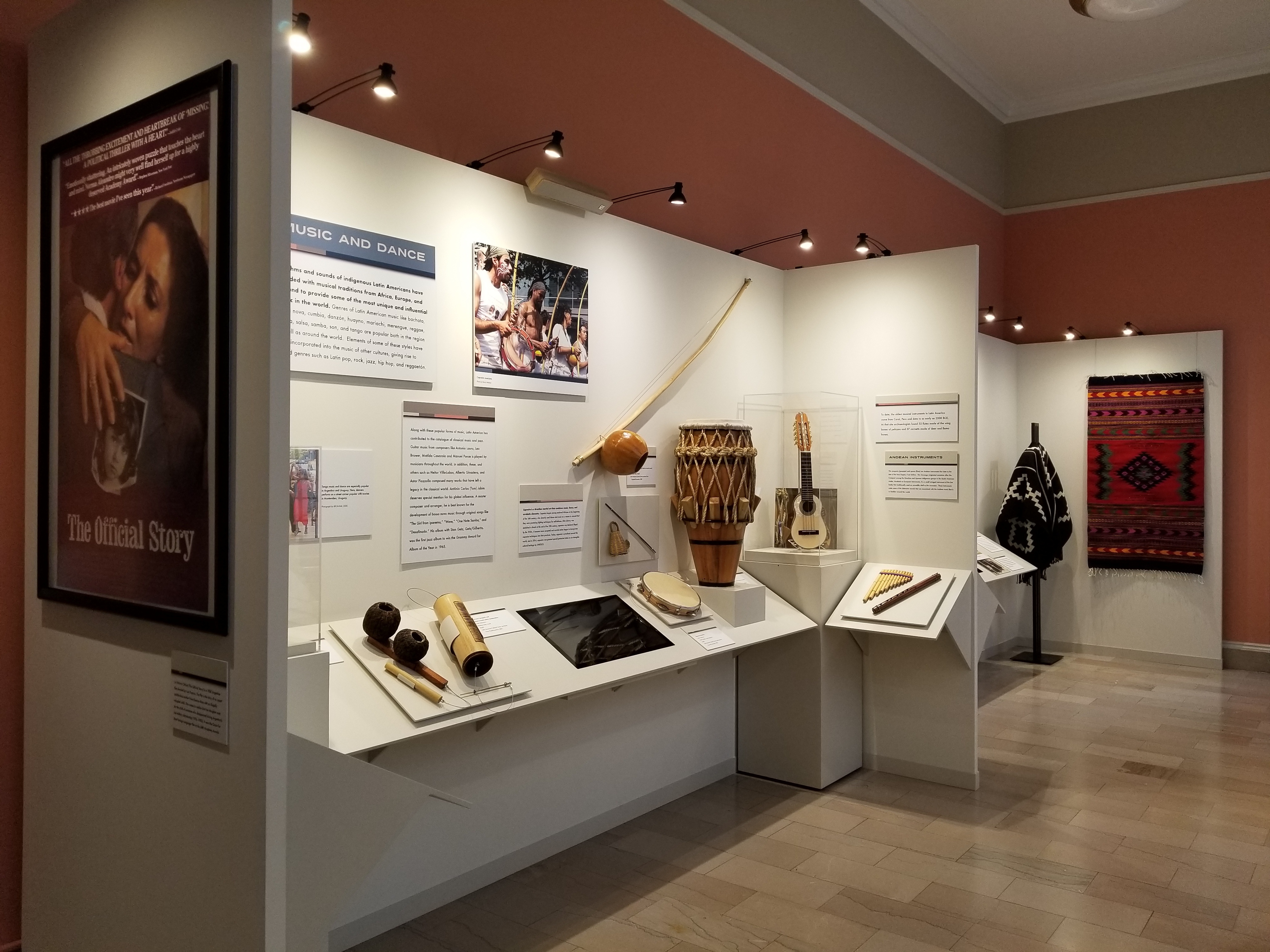
“My main focus here is primarily on our special exhibitions,” Budd shares, “where we develop exhibits that provide in-depth cultural context to the objects we curate.”
They are also beginning to schedule special events, lectures and performances that help create a cultural exchange within the region.
An outreach initiative of the Latin American Studies Association (LASA), LACC is a non-profit organization of nearly 14,000 scholars and students from around the globe; it’s been based here in Pittsburgh since 1986 (this article sheds light on some relevant stats about the region’s demographics.) Since its inception, LASA had to seek a new HQ thanks to the growth of its membership and programs, leading to this new home in the historic district of Oakland — an appropriate location as the city’s educational hub.
Currently, in addition to the fascinating permanent exhibit “Latin America and the Caribbean– An Overview of its Peoples, Cultures, Arts,” the team enthusiastically welcomes a brand-new exhibit, “MEXICAN MASKS: Symbols, Celebrations, Satire, and Safety,” on display through April 20, 2024. Through July 22, 2023, visitors can also enjoy “Maya Spirituality: Indigenous Paintings 1957 – 2020.”
Special Exhibits & Personal Connections
Budd explains that the mask exhibit showcases 88 traditional and contemporary examples from 19 states in Mexico (a favorite of Budd's on display happens to be a full-size jaguar body mask, carved in wood). 60 come from a collector friend of hers — Rob Gaston of Gaston Design in Fruita, Colorado. Guests find a video presentation highlighting five dance mask fests, contemporary photos, plus miniature mask festival figurines.
Billie (Bill) R. DeWalt, PhD, Senior Advisor Latin American Studies Association (and the Director of the Center for Latin American Studies at the University of Pittsburgh from 1993-2001), shares that, during the pandemic, he learned that Mexican masks and Covid were intersecting in interesting ways — like Mexican freestyle wrestlers who use masks as part of their in-ring personas going into public to encourage everyday folks to wear masks, too.
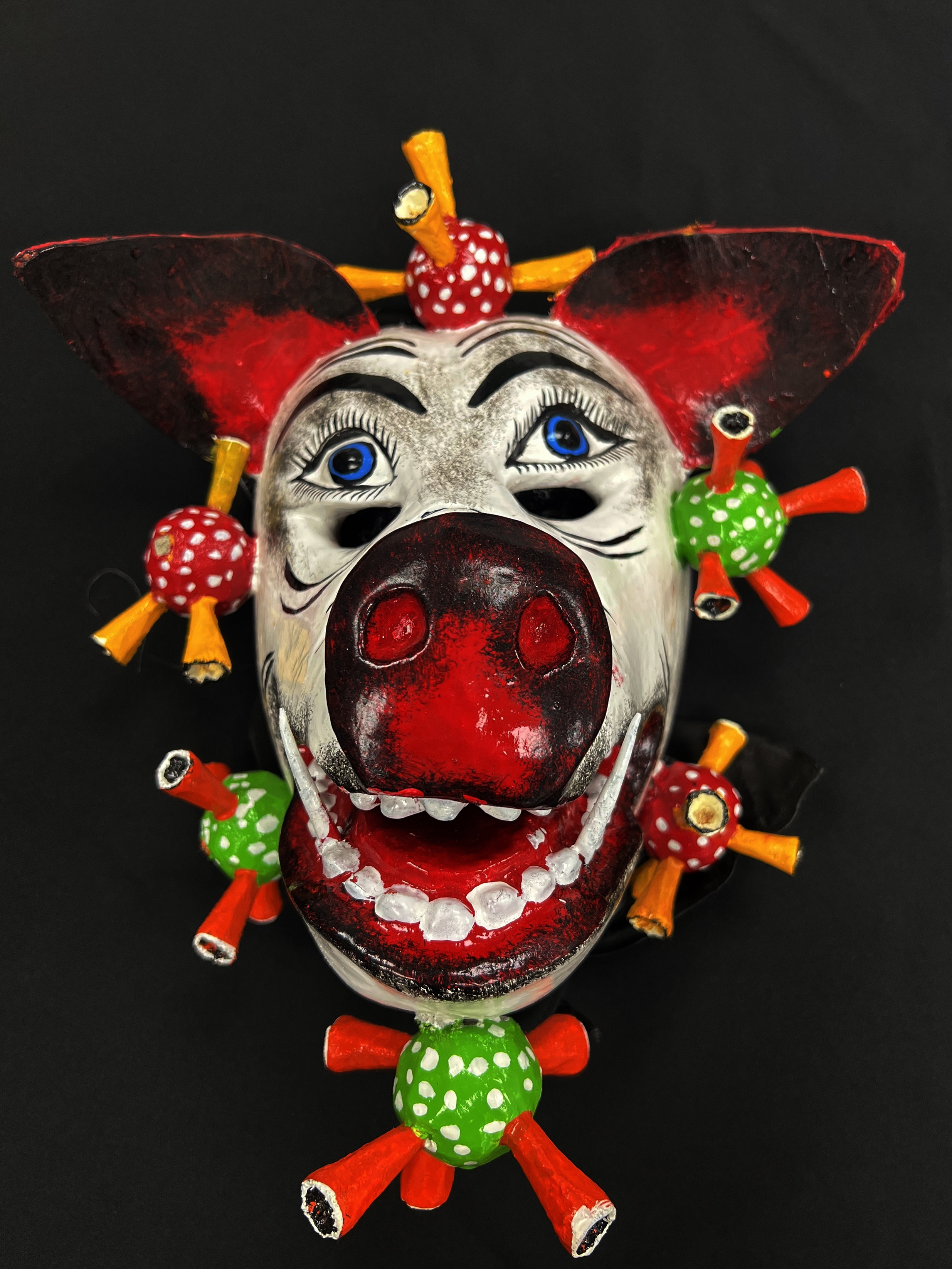
"Some, who had made versions of their masks to sell to fans, began making Covid masks as a means of replacing lost income," he adds. Two Mexican anthropologists, Carlos Davila and Blanca Cardenas, also began encouraging traditional mask-makers to portray how they thought about Covid in masks; several of these creations are on display. Some local collectors also have loaned important objects and paintings that have been incorporated into the exhibit.
DeWalt enjoys a personal connection to this exhibit, too, since he lived in a small village in central Mexico while completing his PhD in Cultural Anthropology at the University of Connecticut. “Some of my most vivid memories of that time are the festivals where masked dancers celebrated holidays like Holy Week and Easter, the Christmas Season, the patron saint of the community and many others,” he said. “On any day in some part of Mexico there is likely to be a fiesta happening — people in masks are a part of many of those celebrations.” He has a small collection of masks himself; some appear in the exhibit.
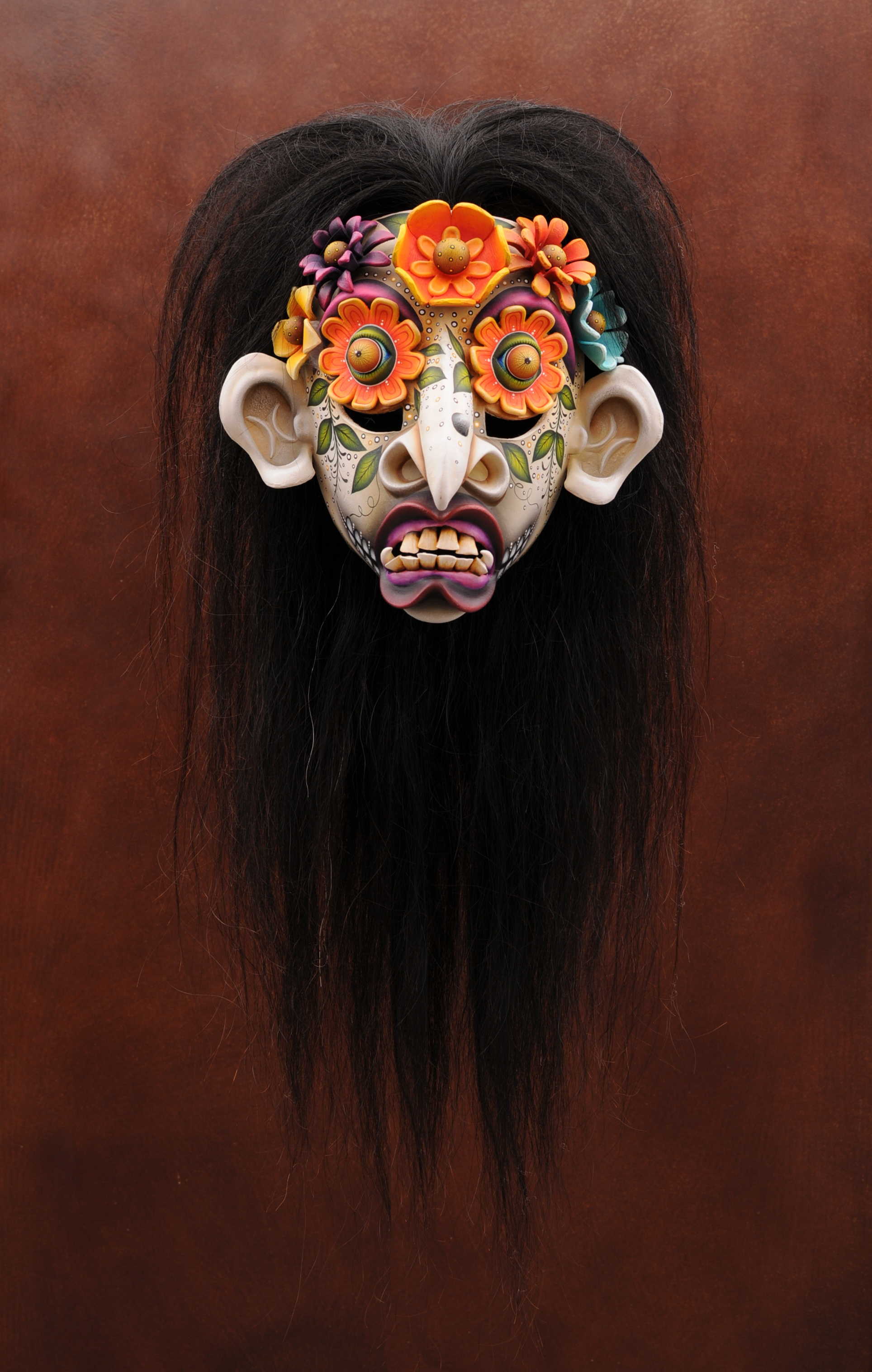
Latin Influence Throughout Pittsburgh
Of course Latin American art and flavors stretch well beyond the walls of this informative Oakland center, from the Annual Latin American & Caribbean Festival (which took place in late September) to Camerata 33, a Pittsburgh-based professional orchestra that promotes Latin-American chamber music. (Want to try recording your own version of songs by favorite Latin American stars? Consider booking a session at the Oaklander Hotel’s new recording studio, located directly next door to the LACC.)
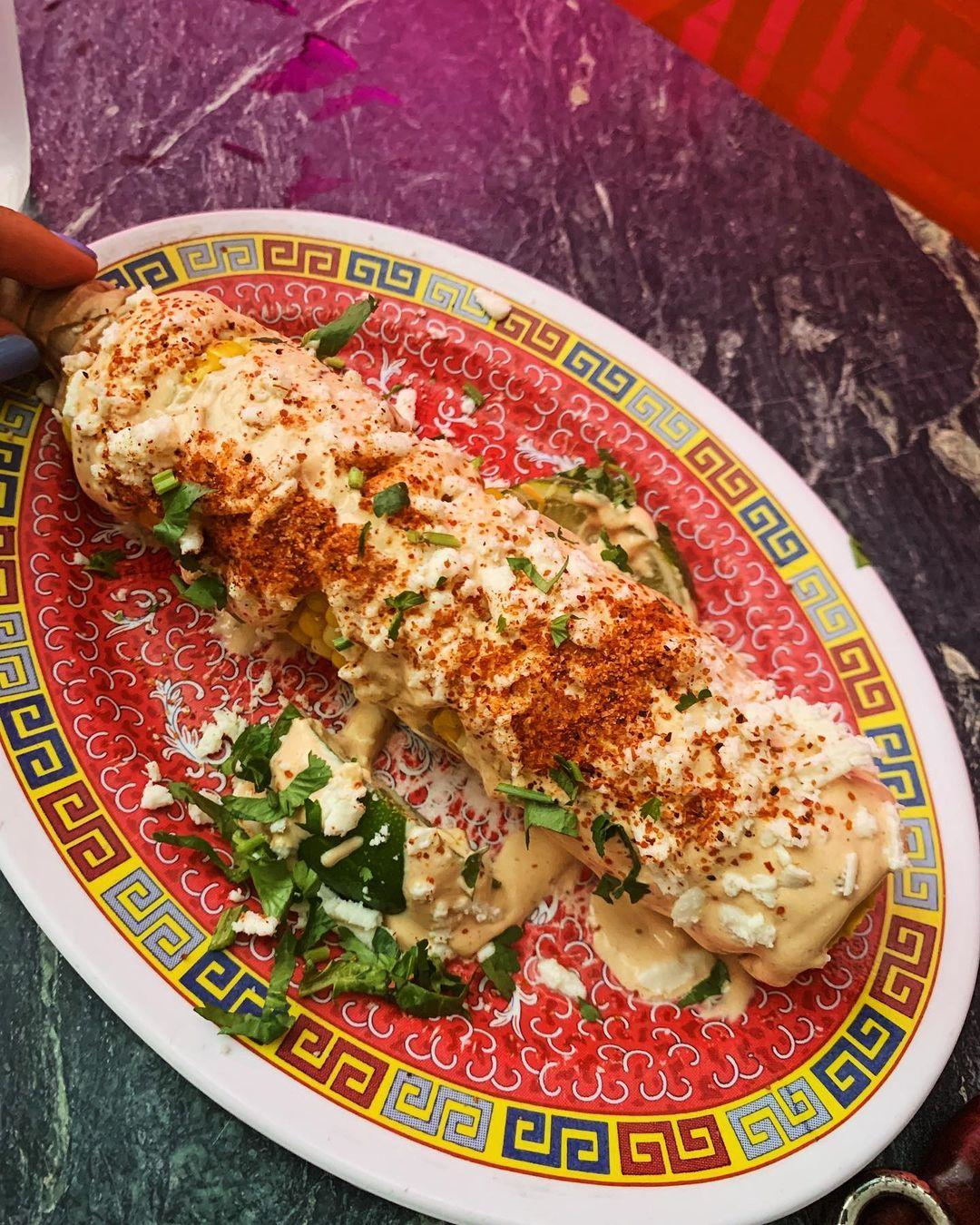
We spoke with LACC Event Service Coordinator (and Mexico native) Daniela Alcantara about a few of her favorite spots in Pittsburgh. “When it comes to my go-to Mexican dining spots, El Rincon Oaxaqueño and Esquina Cantina in Lawrenceville are top of my list,” she says. “El Rincon Oaxaqueño, a vibrant yellow food truck, is run by a warm and welcoming family hailing from Oaxaca, Mexico, the very place where mole, the iconic Mexican sauce, was born. Their enchiladas de mole and enchiladas verdes are pure flavor revelations.”
The Cantina also holds a special place in her heart, due to their commitment to crafting sopes and tortillas entirely by hand. “To me, the hallmark of a great Mexican meal begins with a fresh and authentic tortilla,” she says, “and Esquina Cantina consistently delivers. Their sope de camaron and quesadillas are particular favorites of mine, and the restaurant's ambiance adds to the overall experience, making it a pretty cool place to dine.”
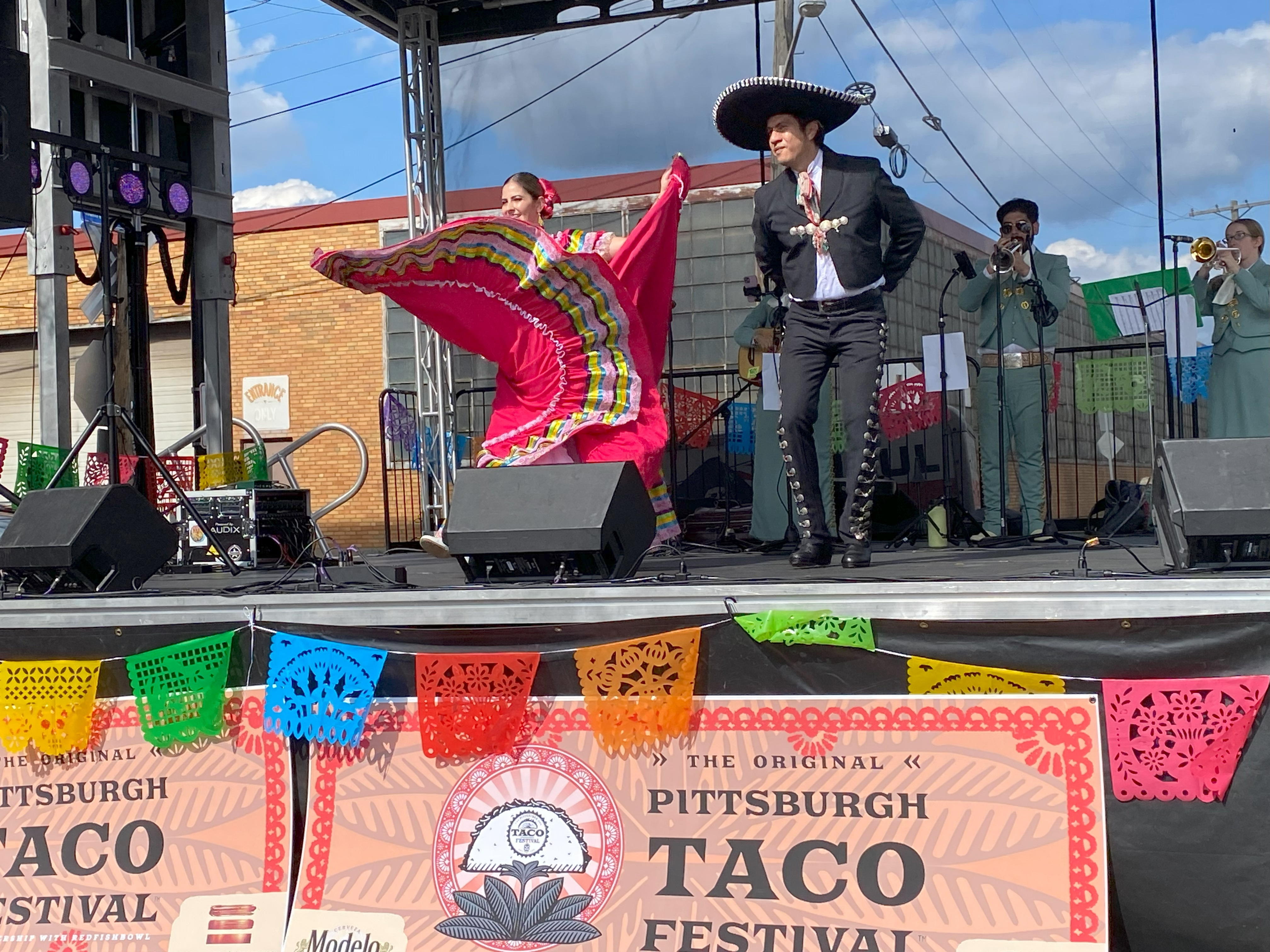
She also mentions the Pittsburgh Taco Festival, an annual gathering with a heartwarming mission. “Not only does it showcase the tantalizing flavors of Latin American cuisine from various countries,” she says, “but it also has a noble purpose. The festival aims to support food trucks and start-ups, all while extending a helping hand to non-profit organizations that serve Pittsburgh's Latin American community, such as Casa San Jose. This year's edition, held in August, featured a diverse array of vendors from across Latin America and was infused with the vibrant rhythms of Latin music.”
More Latin-Owned Businesses
Find even more Latin-owned businesses from restaurants and salons to civic organizations, musicians and more. Follow our guide:







